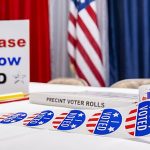One of my favorite illustrations of the different incentives private enterprise and government face when it comes to the provision of security is an incident that took place in a Philadelphia Starbucks in April 2018. Two black men who said they were waiting for a potential business partner wanted to use the restroom, though they hadn’t purchased anything. They were asked to order something or leave.
They did neither, the cops were called, and the men were eventually arrested after refusing to be on their way. This event received a lot of press attention compared to most arrests for trespassing. The Starbucks CEO met with the arrested men and later closed eight thousand Starbucks locations for a day of sensitivity training.
There was a similar incident with United Airlines: after being unable to convince a sufficient number of passengers to voluntarily take a later flight, they got the Chicago Police to forcibly remove a passenger, leading to a viral video of a bloodied man being dragged from the airplane.
In the aftermath, both Starbucks and United were threatened with boycotts, and their stock prices took a hit. By contrast, nobody boycotted the Philadelphia or Chicago Police, which acted on these corporations’ behalf, nor did those departments undergo special training due to these scandals. The reason is obvious: police departments are much less constrained in terms of people being able to take their business elsewhere.
One might remark that these companies were within their rights in ejecting these individuals. (I would agree in the Starbucks case, but whether a small-print contractual “agreement” existed between United and the removed passenger is unclear to me.) But that is irrelevant to the question of what security practices are profit maximizing. It does not make sense for a business to eject patrons at the first sign of trouble, but rather to tolerate nuisances until the cost of toleration becomes greater than the cost of using force (which includes the potential backlash from patrons who will think the use of force was unjustified).
I have argued elsewhere that determining the optimal tradeoff between these values is only possible under the institutional framework of private property and voluntary exchange that enables economic calculation. Because tax-funded police departments do not operate under this framework, they are unable to navigate this and other tradeoffs.
Recent events demonstrate the continued need for this framework of competition and voluntary exchange; it’s not as if an optimal tradeoff between orderliness and overbearingness could be found and forever remain the optimal arrangement. It is also possible to overshoot in favor of one side of the tradeoff, but thankfully competition and profit and loss reveal this entrepreneurial error.
From the look of things, Starbucks went too far in tolerating nuisances, and it has cost them. According to the Wall Street Journal:
Starbucks Corp. said Monday that it is closing 16 U.S. stores after workers reported incidents related to drug use and other disruptions in cafes.
Starbucks said it would permanently close six stores each in the Seattle and Los Angeles areas, two in Portland, Ore., and single locations in Philadelphia and Washington, D.C., by the end of the month.
(It’s not clear whether this was the same Philadelphia Starbucks mentioned above.) Further, it looks like they have reversed course and reimplemented the policies enforced by the Philadelphia Starbucks manager:
Starbucks also said it would give store managers leeway to close restrooms, limit seating or reduce operations in response to safety concerns…. Managers can continue to change store layouts if needed, including limiting seating to customers, the spokeswoman said.
While Starbucks leadership clearly wants to avoid situations like the Philadelphia arrests, their attempt to do so has resulted in employees and customers feeling unsafe. Fortunately, competition has enabled these people to work and drink coffee elsewhere. The profit and loss system demonstrated that Starbucks made an entrepreneurial error in choosing its security policies.
In addition to demonstrating the importance of economic calculation in security, this situation also shows the importance of private control over property. The cities in which Starbucks locations are closing have serious homelessness issues, which are irrevocably intertwined with so-called public property. If the state, rather than private companies, were running these cafes, not only would economic losses present no barrier to continuing these policies, but refusing service to nonpaying customers and ejecting homeless loiterers would likely result in legal challenges.
The “anarcho-tyranny” that prevails in these cities is also an issue. Starbucks CEO Howard Schultz in commenting on these closings says these cities have “abdicated their responsibility in fighting crime.” This is obviously the case when city governments no longer prosecute thefts under $950. But what makes these governments worse than useless is that individuals who use force to defend their property themselves are threated with prosecution. If the Philadelphia Police Department were called about loiterers at a Starbucks today, who knows whether they would make an arrest!





